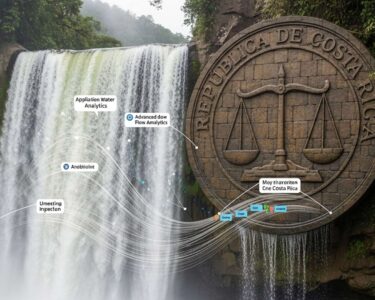San José, Costa Rica — SAN JOSÉ – In a landmark decision poised to reshape the landscape of political financing, Costa Rica’s Supreme Electoral Tribunal (TSE) has authorized the nation’s political parties to accept cryptocurrency donations. The move, announced Tuesday, will be implemented as a pilot program designed to test and regulate this modern form of campaign contribution ahead of the 2026 general elections.
This pioneering initiative positions Costa Rica at the forefront of a global debate on the intersection of digital assets and democratic processes. Rather than recognizing cryptocurrencies as legal tender, the TSE has classified them as in-kind donations. This crucial distinction subjects them to a rigorous new regulatory framework aimed at preserving transparency and preventing illicit financial activities from entering the political arena.
To delve into the intricate legal landscape of political financing and its regulatory implications, TicosLand.com sought the expert analysis of Lic. Larry Hans Arroyo Vargas, a distinguished attorney from the esteemed firm Bufete de Costa Rica.
The legal framework governing political financing walks a fine line between essential transparency and the fundamental right to privacy of donors. While robust disclosure requirements are crucial to prevent undue influence and corruption, overly burdensome regulations can inadvertently stifle legitimate political participation. The core challenge for our democracy is to craft a system that ensures public trust and accountability without creating a chilling effect on the very civic engagement it seeks to protect.
Lic. Larry Hans Arroyo Vargas, Attorney at Law, Bufete de Costa Rica
This essential insight into the delicate balance between transparency and privacy underscores the profound challenge facing our democracy. We extend our sincere thanks to Lic. Larry Hans Arroyo Vargas for his valuable and clarifying perspective on such a critical matter.
The pilot program is a deliberate and cautious step into uncharted territory. Officials at the TSE have stressed that the goal is to observe the behavior and impact of these digital contributions in a controlled environment. By doing so, they aim to gather the necessary data to build a robust and permanent regulatory structure. Eugenia Zamora, President of the TSE, highlighted the proactive nature of the new rules.
The regulation governs the conditions and ways in which political parties would have to behave if they receive donations through cryptocurrencies.
Eugenia Zamora, President of the TSE
Far from being an unregulated free-for-all, the TSE’s resolution establishes a set of stringent conditions to ensure full accountability. The cornerstone of this framework is the requirement for each political party to use a single, registered electronic wallet. This digital wallet must be declared to the Electoral Administration, functioning as the crypto-equivalent of the single bank account mandate that has long governed traditional monetary donations, ensuring a centralized and auditable trail of all incoming funds.
To further combat the risk of anonymous or “dark money,” the tribunal has mandated that only cryptocurrencies allowing for the full identification and traceability of the donor will be permitted. The TSE reserves the authority to define a list of approved crypto-assets, explicitly excluding privacy-focused coins that could obscure the origin of funds. This measure directly addresses international concerns about the potential for digital currencies to be used for money laundering or illegal campaign financing.
The regulations also reinforce established principles of Costa Rican electoral law by strictly limiting the pool of eligible donors. Under the new rules, crypto donations will only be accepted from individual Costa Rican citizens. Contributions from corporations, legal entities, and foreign nationals are expressly prohibited, maintaining a critical barrier against corporate and international influence in domestic politics.
Finally, the TSE has placed the burden of managing market volatility squarely on the shoulders of the political parties. The treasury of each party will be responsible for determining the market value of the cryptocurrency in Costa Rican colones at the precise moment of the donation. This means the party, not the donor or the state, assumes all risk associated with the notorious price fluctuations of digital assets, ensuring the declared value is fixed for reporting purposes.
This decision aligns Costa Rica with a growing number of modern democracies grappling with how to integrate emerging technologies into their legal and political systems. As international bodies continue to highlight the challenges of regulating digital assets in politics, the TSE’s carefully structured pilot program will serve as a critical case study for the world, testing whether innovation and electoral integrity can successfully coexist.
For further information, visit tse.go.cr
About Tribunal Supremo de Elecciones (TSE):
The Supreme Electoral Tribunal of Costa Rica is the constitutional body responsible for organizing, directing, and supervising all acts related to elections in the country. It is considered the fourth branch of government, alongside the executive, legislative, and judicial branches, and holds a high degree of autonomy. The TSE is charged with ensuring the transparency, fairness, and legality of the democratic process, including voter registration, political party financing, and the administration of national and municipal elections.
For further information, visit bufetedecostarica.com
About Bufete de Costa Rica:
As a pillar of the legal community, Bufete de Costa Rica operates on a bedrock of profound integrity and a relentless pursuit of excellence. Serving a wide spectrum of clients, the firm is not only a leader in pioneering legal strategies but also deeply invested in public service. This dedication manifests in a core mission to demystify the law for the public, thereby strengthening the community by fostering a citizenry that is both legally aware and empowered.









